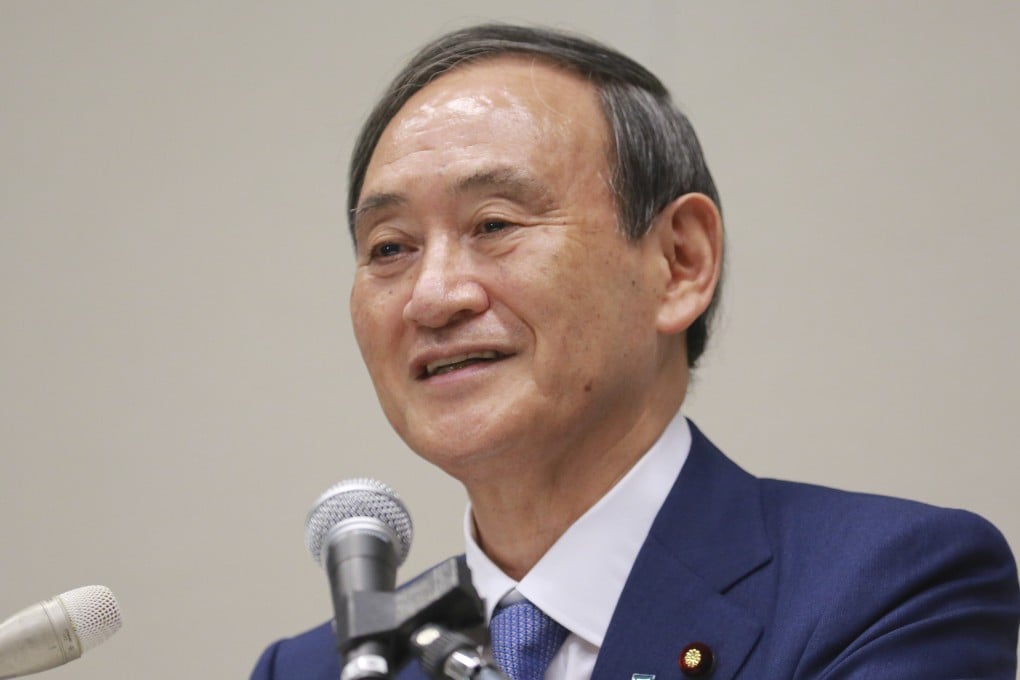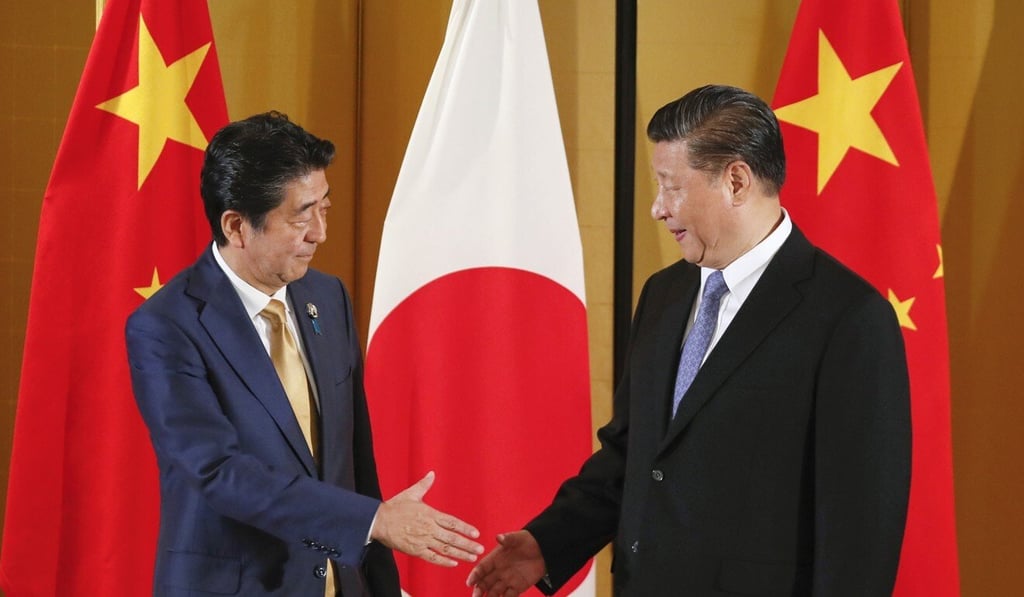China-Japan ties in steady hands if Yoshihide Suga takes over from Shinzo Abe, analysts say
- Suga is the front runner in the race for his party’s leadership and would have to balance security and economic interests with China and the United States
- Tokyo’s relations with Beijing expected to continue to warm under a Suga administration, observer says

Suga formally announced his candidacy for his party’s leadership on Wednesday and is widely seen as the favourite to succeed Abe, who announced last week that he was stepping down.

02:19
Japan’s Prime Minister Shinzo Abe resigns for health reasons
Hu Lingyuan, director of Fudan University’s Centre for Japanese Studies in Shanghai, said that as the cabinet secretary, Suga was by Abe’s side as Abe shaped the relationship between the two countries.
Hu said that despite a rise in tensions from 2012 to 2014 during Abe’s second term, relations had warmed since 2016, a trend that should continue if Suga became prime minister.
“Abe has made significant contributions to the improvement in China and Japan relations,” Hu said. “As someone picked by Abe to be the cabinet secretary, the most important cabinet role, his fundamental ideologies and attitude towards China should be similar.”

Japanese media reported that Suga had received the backing of several factions in the ruling Liberal Democratic Party (LDP), suggesting that he was likely to win the party’s leadership vote, which is expected to be in the coming weeks. The LDP has a majority in the lower house of Japan’s legislature and the party’s leader would become prime minister.